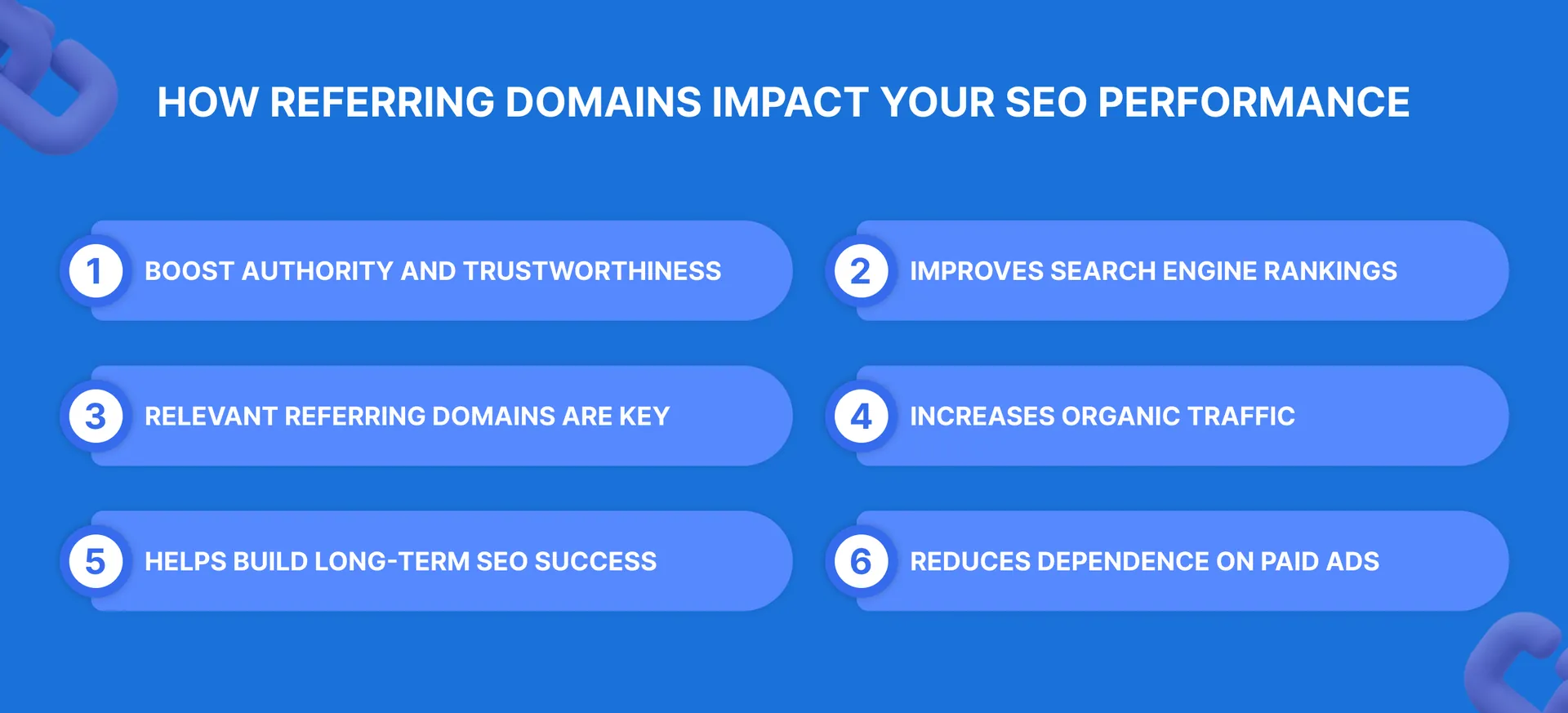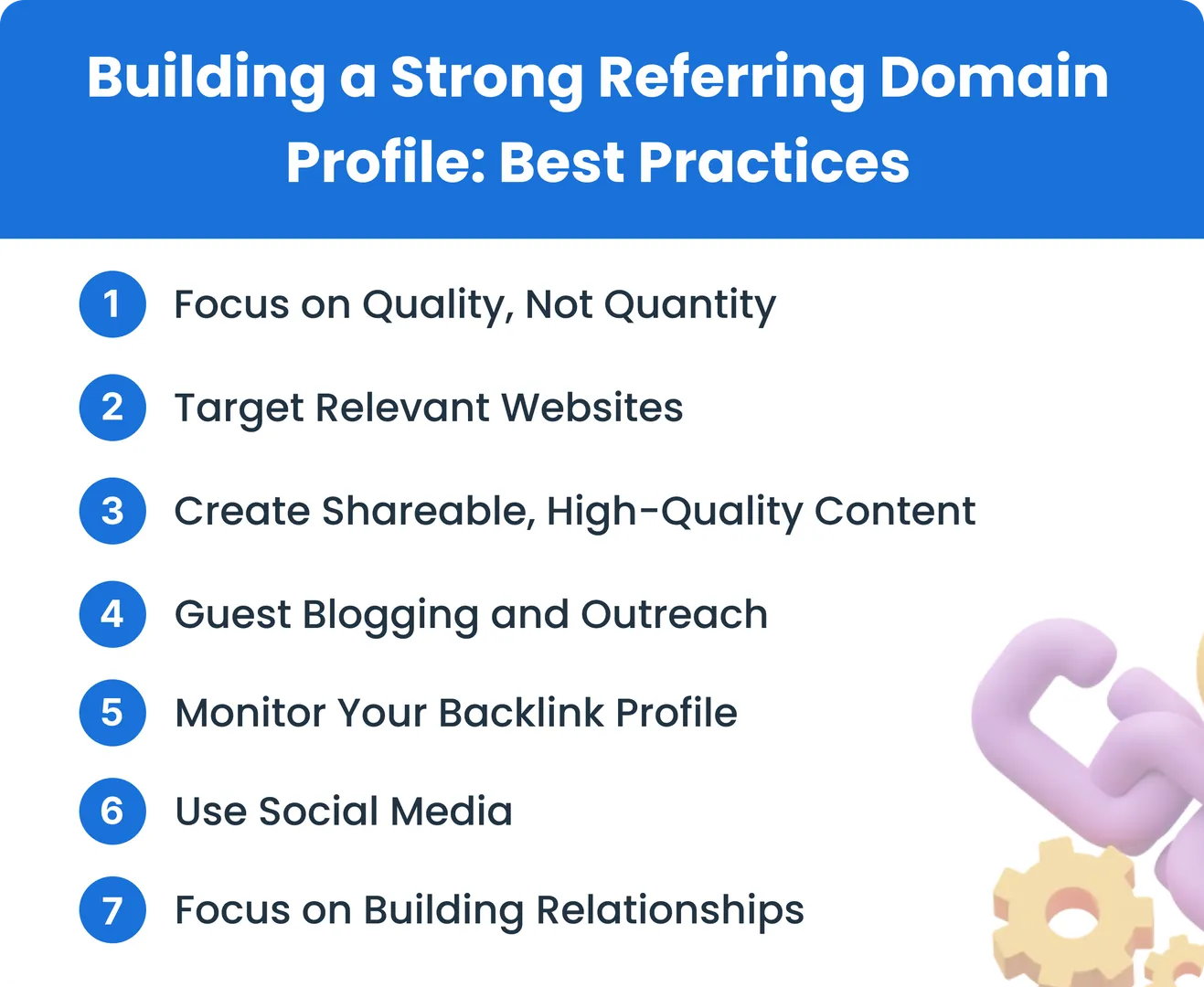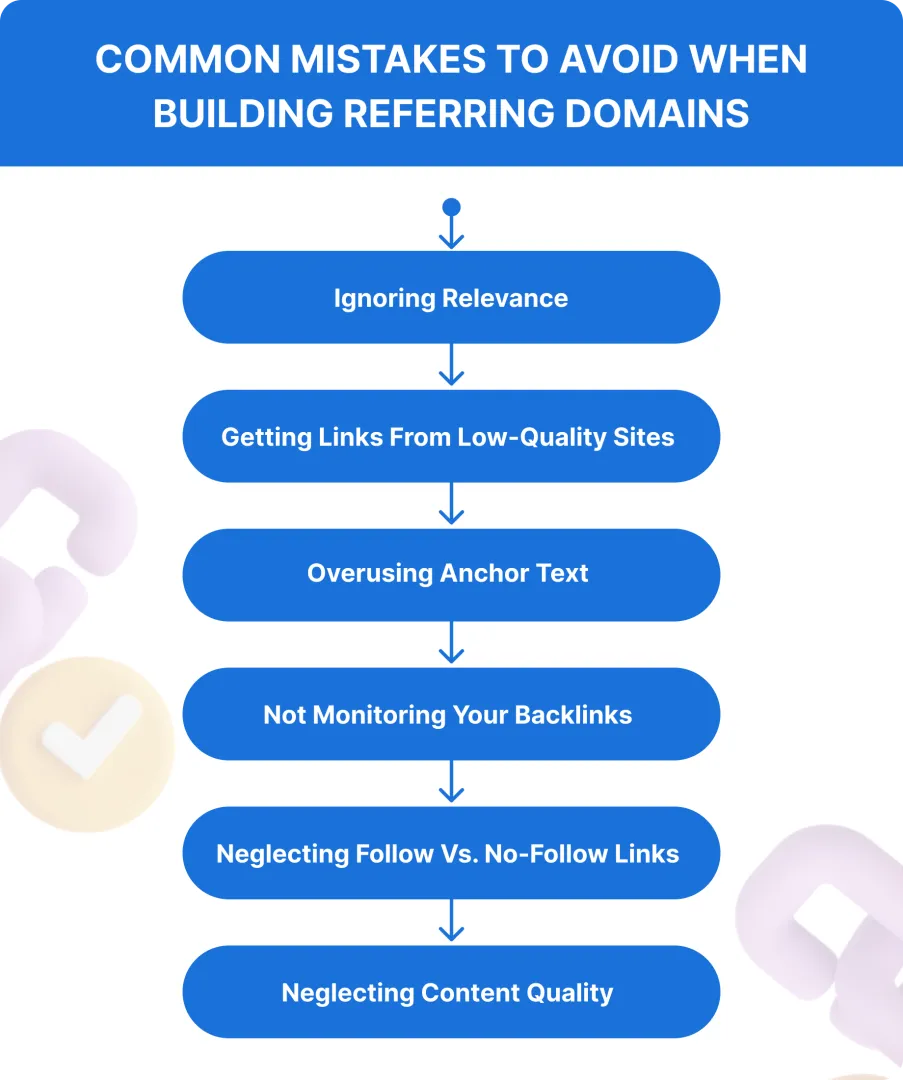Referring Domains: The Key to Stronger SEO and Backlinks
Referring domains in SEO are one of the most powerful factors that influence your website's visibility and rankings on search engines.

Summary:
In the world of search engine optimization (SEO), backlinks play a crucial role in determining a website’s rankings. And when it comes to backlinks, the quality of the referring domains is just as important as the quantity. Referring domains are the unique websites that link to your site, and having a diverse range of authoritative, relevant referring domains can significantly boost your SEO efforts.
Not all backlinks are created equal. Backlinks from high-quality referring domains carry more weight and improve your site’s credibility with search engines. In this blog, we’ll explore how referring domains impact SEO, why they matter, and how to strategically build a strong referring domain profile to enhance your rankings and drive more organic traffic.
The Power of Quality Over Quantity in Referring Domains
When it comes to SEO, the number of backlinks pointing to your website is important, but the quality of those backlinks is even more crucial. In the context of referring domains in SEO, it’s not just about gathering a large number of backlinks but also about ensuring that those backlinks come from high-quality, authoritative websites.
Why Quality Referring Domains Matter?
Referring domains in SEO act as recommendations for your website. Backlinks from trustworthy, authoritative domains pass on more value, boosting your site’s credibility. Conversely, links from low-quality sites can harm your SEO efforts, potentially leading to penalties.
What makes a Referring Domain High-Quality?
Authority: Websites with strong domain authority signal trustworthiness to search engines.
Relevance: Links from sites in your niche are more valuable.
Reputation: Established and well-regarded sites provide more weight to your backlinks.
How Referring Domains Impact Your Search Engine Rankings
Referring domains in SEO are one of the most powerful factors that influence your website’s visibility and rankings on search engines. Here’s how they impact your SEO performance:

Boost Authority and Trustworthiness
Referring domains in SEO shows search engines that your website is reliable and trustworthy. When high-quality websites link to your site, it helps boost your site’s authority and credibility.
Improves Search Engine Rankings
The more quality referring domains you have, the higher your chances of ranking better in search engine results. Search engines see these links as a vote of confidence in your content.
Relevant Referring Domains are Key
Having referring domains from websites in the same or related niche is more valuable than having links from unrelated sites. Relevance plays a crucial role in SEO success.
Increases Organic Traffic
Quality backlinks from high-authority referring domains drive more organic traffic to your site, helping you reach a wider audience and grow your online presence.
Helps Build Long-Term SEO Success
Referring domains are an ongoing asset in SEO. As your backlink profile grows and more quality referring domains point to your site, your long-term SEO rankings will improve.
Reduces Dependence on Paid Ads
Having many referring domains can reduce your need for paid ads, as the organic traffic from backlinks can deliver steady, long-term results.
Building a Strong Referring Domain Profile: Best Practices
Creating a strong referring domain profile is essential for improving your site’s SEO performance. By focusing on quality and relevance, you can attract valuable backlinks that boost your rankings.
Here are some best practices to help you build an effective referring domain profile:

Focus on Quality, Not Quantity
While having many referring domains in SEO can be beneficial, it’s more important to prioritize high-quality, authoritative websites. A few strong links from trusted sites can have a greater impact than numerous low-quality ones.
Target Relevant Websites
Look for referring domains from websites related to your industry or topic. Relevant backlinks help search engines understand your content and can improve your site’s visibility in related search results.
Create Shareable, High-Quality Content
Content that is informative, engaging, and shareable is more likely to attract backlinks from reputable domains. When other websites find your content valuable, they’re more inclined to link back to it, enhancing your referring domain profile.
Guest Blogging and Outreach
Reaching out to other sites for guest blogging opportunities or offering valuable insights can help you gain referring domains in SEO. Be sure to contribute content that’s genuinely useful to the audience of the website you’re linking from.
Monitor Your Backlink Profile
Review your referring domains regularly to ensure they come from reputable sources. To strengthen your referring domain profile, disavow any low-quality or spammy links.
Use Social Media
Sharing your content on social media platforms can increase its visibility, making it more likely that others will link to your site. While social media links don’t directly impact SEO, they can help attract high-quality referring domains.
Focus on Building Relationships
Building strong relationships with influencers, bloggers, and other content creators can lead to natural backlinks from authoritative referring domains. Collaboration and networking can significantly improve your SEO efforts.
By following these best practices, you can build a solid referring domain profile that supports your SEO goals and helps increase your site’s rankings over time.
How to Find and Evaluate High-Quality Referring Domains
1) Use SEO Tools for Backlink Analysis
Tools like Ahrefs, Moz, and SEMrush help identify valuable referring domains.
2) Check Domain Authority (DA) or Domain Rating (DR)
Focus on sites with high DA or DR for stronger backlinks.
3) Access Relevance to Your Niche
Ensure the referring domain is relevant to your industry for better SEO impact.
4) Avoid Toxic or Spammy Referring Domains
Remove low-quality links using Google’s Disavow Tool.
5) Look for Organic Backlinks
Organic, natural links provide long-term SEO benefits.
6) Monitor Competitor Backlinks
Analyze competitors’ backlink profiles to find new, quality link-building opportunities.
Common Mistakes to Avoid When Building Referring Domains
Building a strong referring domain profile is essential for improving your website’s SEO, but there are common mistakes that can hinder your progress. Avoiding these pitfalls will help you create a more effective backlink strategy.
Here are the key mistakes to avoid:

1) Ignoring Relevance
Links from irrelevant websites don’t help your SEO. Focus on niche-related domains for better impact.
2) Getting Links from Low-Quality Sites
Avoid spammy or low-authority sites, as they can harm your rankings.
3) Overusing Anchor Text
Using the same or overly optimized anchor text can hurt your SEO. Keep it natural and varied.
4) Not Monitoring Your Backlinks
Regularly check your backlink profile to remove harmful or irrelevant links.
5) Neglecting Follow vs. No-Follow Links
Don’t focus too much on no-follow links; follow links are more beneficial for SEO.
6) Neglecting Content Quality
Quality content attracts better backlinks. Make sure your content is valuable and shareable.
Conclusion
In conclusion, referring domains in SEO are essential for building a strong online presence and improving your website’s search engine rankings. By focusing on quality, relevance, and authority when acquiring backlinks, you can create a powerful referring domain profile that supports long-term SEO success.
Remember, it’s not just about the number of links you have, but the quality and trustworthiness of the sites linking to you. Stay consistent, monitor your backlinks, and avoid common mistakes to ensure your referring domain strategy drives real, lasting results for your SEO.